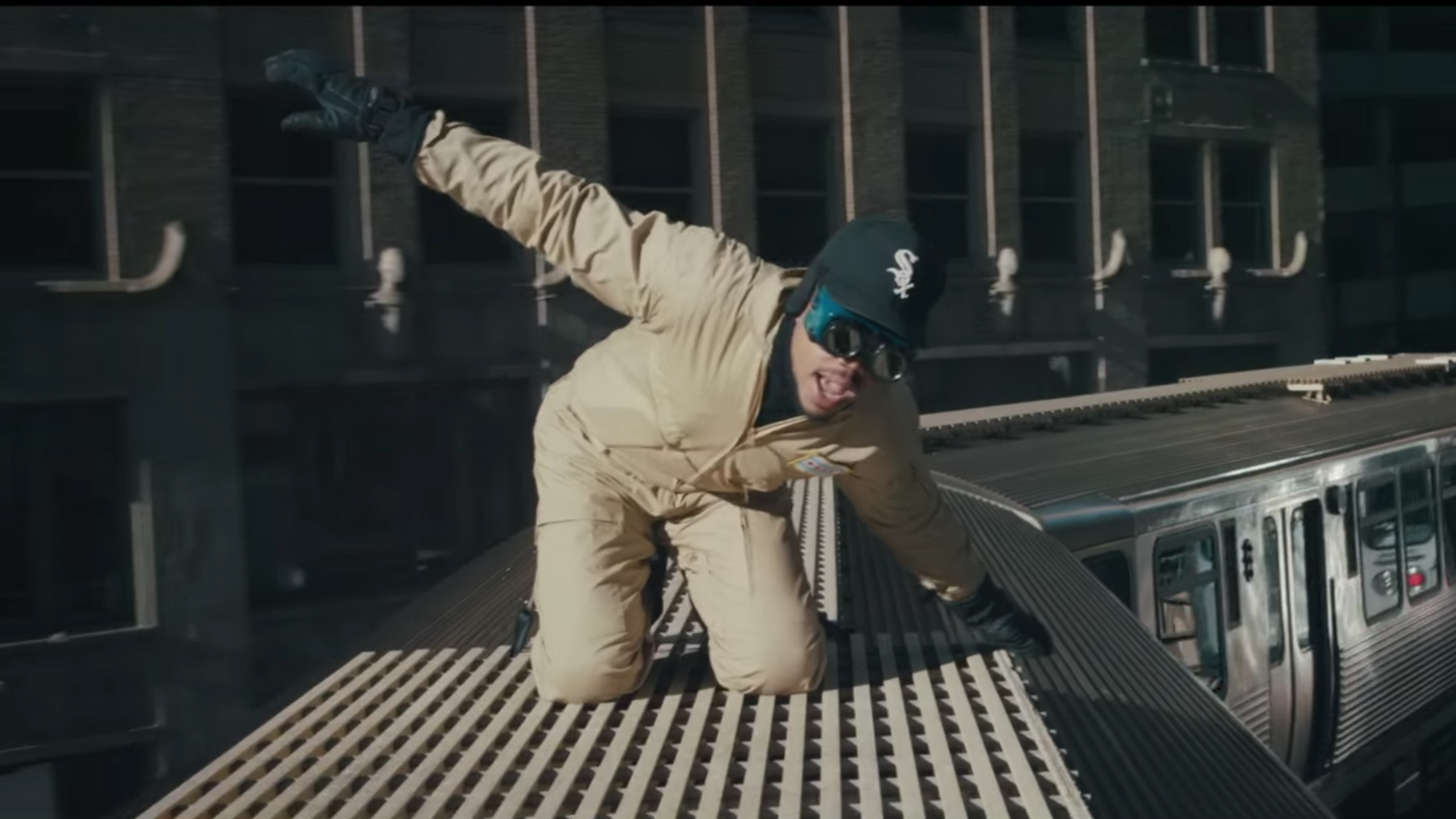Chance the Rapper, you might have heard, suddenly has a lot of people interested in gymnastics. His recent redesign of the Chicago White Sox’s caps has the team (or at least its Twitter) doing front flips. News site DNAinfo, too, is doing front flips.
Per Chance himself, in the opening line of his single “Angels,” which he debuted on Colbert last fall, he’s got the whole damn city of Chicago doing front flips, and if you happen to live here, you know that it’s becoming increasingly difficult to argue otherwise: in addition to the release of the new Sox caps today, Lil’ Chano from 79th will headline local radio station Power 92’s fifteen-year-anniversary show at the downtown Chicago Theater tonight, and it seems like the entire tri-state area is pregnant with anticipation for the twenty-two-year-old’s third mixtape.
Though he’s blessed with an abundance of it, charm isn’t the sole agent behind Chance’s popularity in Chicago. The very next line in “Angels,” the one that follows his affirmation about his city, reads “when every father, mayor, rapper jump ship.” Chicago is not an easy place to live even for the very fortunate: our schools are closing, our population is declining such that Houston (Houston!) is on track to eclipse us as the country’s third-largest city in the next decade or so, and we’re stuck with an unpopular mayor who is now believed by many to have aided in the coverup of Laquan McDonald’s death at the hands of police in 2014.
Chance isn’t blind to the way things are: he does, after all, flat-out accuse Rahm Emmanuel of being a mayor in absence in that second line (Spike Lee, get on Genius). But he seems to be animated almost solely by Chicago and by the things that make it particular, and (and this matters) not by the things that make Chicago a “world” city, which is to say a great city in an interchangeably bourgeois way: the restaurant scene, the architecture, the Blackhawks; you get the sense he’d rep our least popular sports team even if he weren’t from the South Side.
Instead, he’s out there on national TV saying “woo wap da bam” and devoting half a verse to repeating the names of Chicago’s two hip-hop stations. There he is in the “Angels” video, rolling around the Loop atop a Brown Line train and letting the camera linger on some jukers inside. There’s Hebru Brantley’s Flyboy. This is a city that’s become political shorthand (whether fairly or not) for out-of-control violence, and “Angels” tells you that Chicago is so damn great you feel like Alexand’. And even if you don’t agree, you’d be hard pressed to argue that Chance doesn’t believe what he says, and that depth of belief makes it seem like the city might be more worthy of love than we give it credit for. Like many a father, mayor, rapper before him, he could easily decamp; instead, when it comes to municipal government, Chano’s thinking “maybe I should.”
This is an easy place to leave: New York has more cultural capital, and LA has better weather. Houston’s economy is making waves beyond the oil industry. But it’s impossible to imagine Chancellor Bennett—perhaps the brightest light in the current hip-hop cosmos—wanting to be anywhere else or calling any other city home. I guess that’s why they call it “where I stay.”









